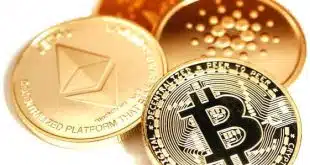The Reverse Robin Hood hypothesis sounds compelling. Here’s why it’s wrong.
Do rich people pay less for goods and services than the average person? This topic came up recently in The Wall Street Journal article “The Credit-Card Fees Merchants Hate, Banks Love and Consumers Pay.” The reporters quote Aaron Klein’s use of a phrase, “reverse Robin Hood,” that I coined in a 2009 Rutgers Law Journal article entitled “The Reverse-Robin-Hood-Cross-Subsidy Hypothesis.”
In the study, I explained that higher interchange fees, known as swipe fees, may not hurt low-income consumers. Klein and others assume swipe fees compel merchants to raise prices, thereby reducing demand and forcing everyone to pay more.
That thinking is flawed. If accepting cards only required the merchant to raise prices without providing benefits, no merchant would do it.
The Reverse Robin Hood argument can be broken down into two parts.
First, rich people who use credit cards pay less because of rewards. If you stopped there, the hypothesis is probably true, but not surprising.
I just spoke with an investment company charging a lower percentage to those who invest more. Discounts are often higher for those who buy more. Frequent fliers pay less than occasional travelers because of airline loyalty programs, and drivers effectively get more groceries for the same money than generally less wealthy pedestrian and biker shoppers when supermarkets provide parking for free.
Still, the benefits of card rewards are not limited to the wealthy. They are widely available to consumers at all income levels. Nearly three-fourths of cardholders who earn less than $20,000 annually have a rewards card with perks linked to wholesale clubs, gas stations, and home-improvement stores, to name a few.
The Discover card offers a 5% reward at a rotating group of merchants regularly frequented by lower-income consumers. Right now, these include wholesale clubs, Home Depot, and gas stations.
The piece in The Wall Street Journal includes quotes from small merchants—a coffee shop, a record store—saying that swipe fees hurt them. But merchants could combat the impact of reward cards if they found it profitable to do so. Federal law protects their ability to offer cash discounts.
And there are creative ways for merchants to effectively lower prices for those who don’t use expensive rewards cards by offering their own store card or discount code. Burger Lounge, a mid-sized burger chain, does this effectively while continuing to accept credit cards.
A Realistic Reading
More important, though, Klein, like many commentators before him, asserted a second and more controversial part of the Reverse Robin Hood Hypothesis: Those who pay in cash or with debit or non-rewards cards pay more than they otherwise would.
Exactly how this might happen turns out to be a very complex economic question. Although accounts in the popular press rarely articulate it, the theory typically goes as follows: Swipe fees compel the merchant to raise prices to cover the cost of the swipe fee, thereby reducing demand and forcing everyone to pay more. Rich people using rewards cards get back some of the inflated price from their rewards, but poor people don’t.
Of course, that’s implausible. A more realistic reading of this situation is that merchants who accept cards likely increase their sales because card customers make purchases that they otherwise wouldn’t make.
Purchase volume also likely increases because of psychological factors that lead customers to buy more when they are using a rewards card than they would if they had to pay cash or use a card without any rewards.
If card acceptance increases sales, merchants can spread their fixed costs across a larger revenue base. For this reason, card-accepting merchants may reduce prices, benefiting everyone.
Determining the precise distributional effects of rewards cards is thus more complicated than press accounts imply. It would require analysts to calculate and compare prices in but-for worlds without credit cards (or without rewards cards) to those in actual markets.
That sort of economic analysis would be difficult if not impossible. And the truth is that we don’t know the distributional impact of rewards cards across income levels and different types of merchants.
No One Is Punished
Still, we can draw tentative conclusions from observed practice. If credit card use benefited the ultra-rich over the middle class and poor by significantly raising prices for all and rebating only the wealthy, one would expect discount stores to emerge that don’t accept credit cards.
These stores could slash prices because of the cost savings from refusing to accept the high-swipe-fee credit cards. And lower-income customers who rely on cash and debit cards would flock to these discount stores.
But that hasn’t happened. To be sure, discount stores appealing to lower-income customers are abundant. But almost always, these stores accept credit cards. This suggests that if card acceptance increases prices, the impact is insignificant.
And, if that’s true, then no one is really punished because of rewards credit cards.
—Steven Semeraro is professor of law at Thomas Jefferson University, San Diego.





